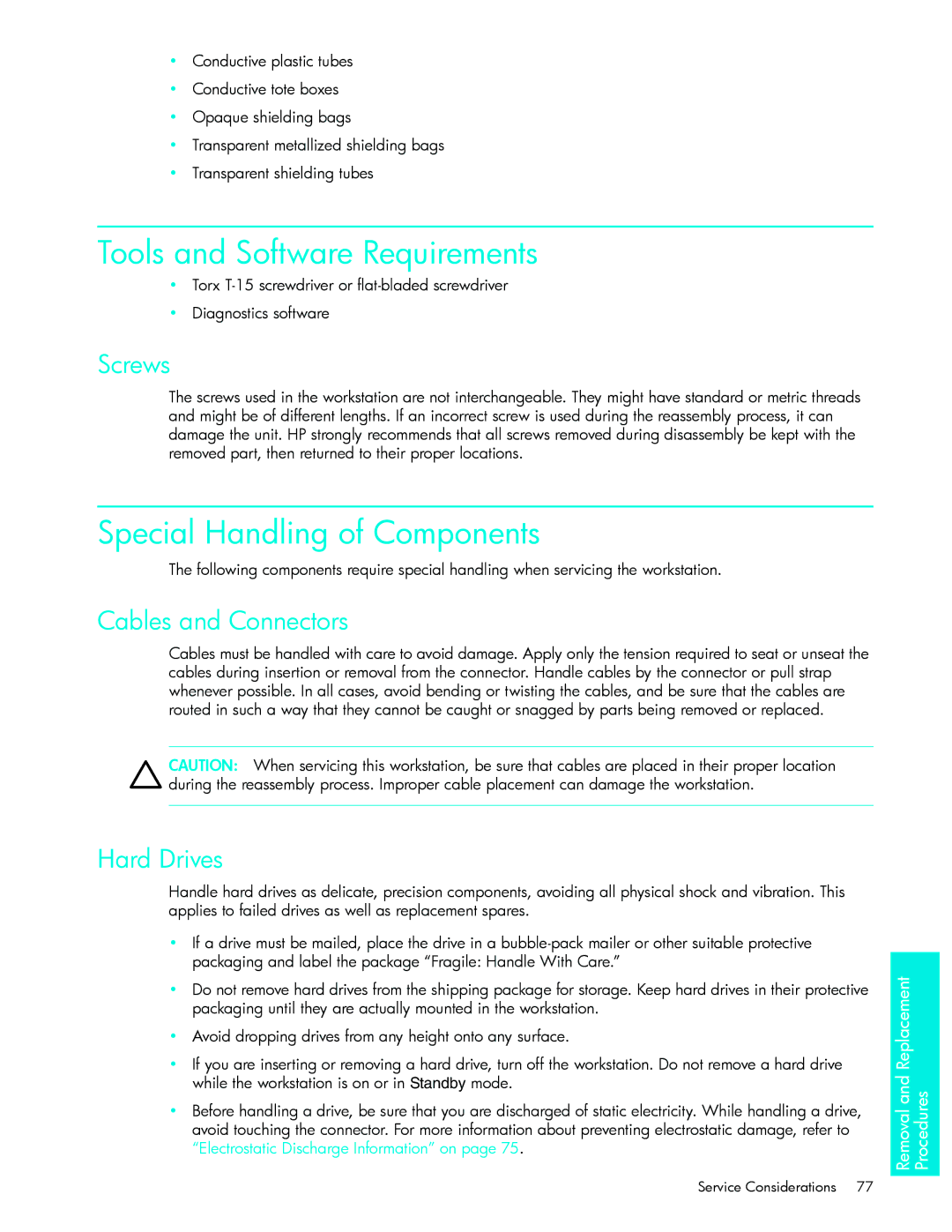
•Conductive plastic tubes
•Conductive tote boxes
•Opaque shielding bags
•Transparent metallized shielding bags
•Transparent shielding tubes
Tools and Software Requirements
•Torx
•Diagnostics software
Screws
The screws used in the workstation are not interchangeable. They might have standard or metric threads and might be of different lengths. If an incorrect screw is used during the reassembly process, it can damage the unit. HP strongly recommends that all screws removed during disassembly be kept with the removed part, then returned to their proper locations.
Special Handling of Components
The following components require special handling when servicing the workstation.
Cables and Connectors
Cables must be handled with care to avoid damage. Apply only the tension required to seat or unseat the cables during insertion or removal from the connector. Handle cables by the connector or pull strap whenever possible. In all cases, avoid bending or twisting the cables, and be sure that the cables are routed in such a way that they cannot be caught or snagged by parts being removed or replaced.
CAUTION: When servicing this workstation, be sure that cables are placed in their proper location during the reassembly process. Improper cable placement can damage the workstation.
Hard Drives
Handle hard drives as delicate, precision components, avoiding all physical shock and vibration. This applies to failed drives as well as replacement spares.
•If a drive must be mailed, place the drive in a
•Do not remove hard drives from the shipping package for storage. Keep hard drives in their protective packaging until they are actually mounted in the workstation.
•Avoid dropping drives from any height onto any surface.
•If you are inserting or removing a hard drive, turn off the workstation. Do not remove a hard drive while the workstation is on or in Standby mode.
•Before handling a drive, be sure that you are discharged of static electricity. While handling a drive, avoid touching the connector. For more information about preventing electrostatic damage, refer to “Electrostatic Discharge Information” on page 75.
Removal and Replacement Procedures
Service Considerations | 77 |
